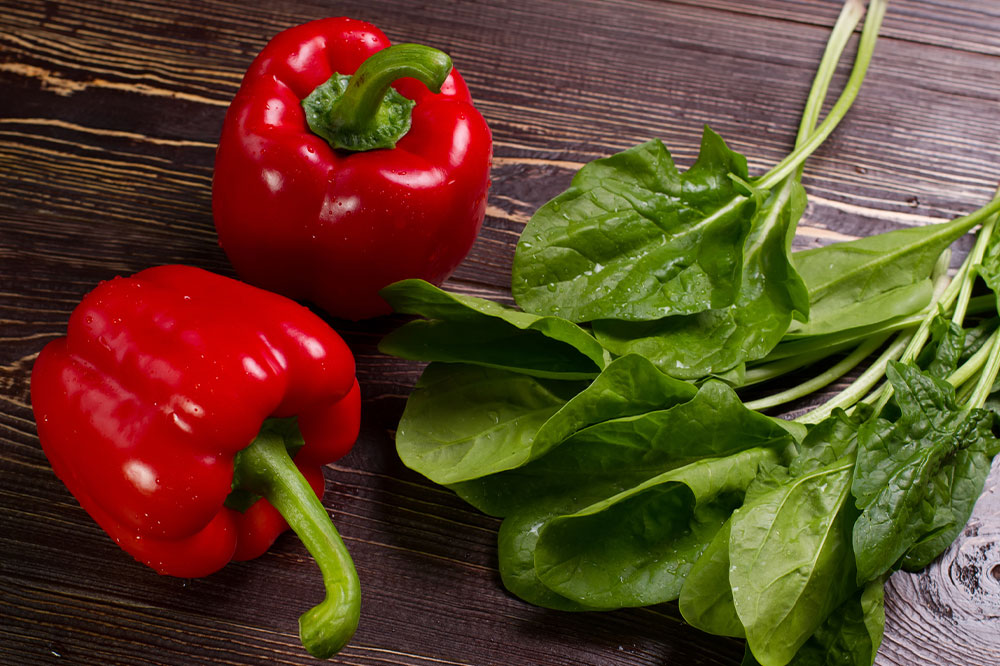
Managing Hyperkalemia – Symptoms, Reasons, and Foods to Eat
Hyperkalemia is a condition that may occur when potassium levels in the body become too high. Although the body needs potassium, increased levels of potassium can cause significant health issues such as muscle weakness, paralysis, and even heart attacks. Usually, adults should have a potassium level between 3.5 to 5.0 millimoles per liter. However, one may never know when their potassium levels are high. Hence healthcare professionals suggest certain lifestyle modifications for better management.
Symptoms of hyperkalemia
Most people with mild hyperkalemia do not experience significant signs of the condition. However, some symptoms may recur over the course of weeks or months. In rare cases, dangerously high levels of potassium can lead to a sudden offset of life-threatening issues. Hence, here are some of the symptoms to look out for.
Muscle weakness
Chest pain
Nausea and vomiting
Irregular heartbeat/ Arrhythmia
Diarrhea
Abdominal pain
Further, the condition can also lead to shortness of breath and numbness and tingling,
Causes of hyperkalemia
Hyperkalemia may occur when the kidneys do not function properly. This can lead to uncontrolled levels of potassium in the body. Some of the main causes of hyperkalemia are mentioned below.
Chronic kidney disease
Usually, patients with Chronic Kidney Disease ( CKD) have compromised kidney function, which means the kidneys may not be able to adequately filter out potassium from the body. This may lead to dangerously high levels of potassium in the body and other health issues. Hence healthcare professionals may suggest that patients follow a meal plan low in potassium.
High potassium intake
Another reason for the development of hyperkalemia may include high potassium intake. Although rare, the risk of developing the condition may increase further if one already has a compromised kidney function. In rare cases, exceedingly high potassium levels may also lead to paralysis.
Dehydration
The body gets dehydrated when its loss of fluids exceeds its fluid consumption. When the body does not have enough fluids, it cannot process potassium properly. This can lead to a gradual build-up of potassium in the blood, causing hyperkalemia. Some signs of dehydration one needs to look out for include excessive thirst, darker urine, and frequent urination. In some cases, dehydration can also lead to dizziness or confusion.
Type 1 diabetes
If one already has type 1 diabetes, the body may not produce enough insulin to keep blood sugar at optimum levels. This further affects how the body processes potassium. Hence, type 1 diabetes can also be one of the reasons for the development of hyperkalemia. Furthermore, a diabetes-friendly meal plan can also have a negative impact on the present potassium levels. As the potassium levels may increase over time, one must seek medical advice at the earliest.
Managing hyperkalemia – Foods to eat
Hyperkalemia usually occurs when potassium levels exceed 5.5 millimoles per liter. If the potassium levels go beyond 6.5 millimoles per liter, it can lead to heart issues. Furthermore, these issues may require immediate medical attention. Hence, here are some foods that can help manage potassium levels.
Red bell peppers
Fresh vegetables such as red bell peppers are known to be low in potassium and high in flavor. Furthermore, these tasty vegetables are rich sources of vitamins C, A, and B6. Moreover, they also contain folic acid, fiber, and lycopene – an antioxidant that aids in the protection against certain forms of cancer. One can consume raw bell peppers as a snack or appetizer. In addition, they can also be added as toppings to sandwiches and salads to meet one’s nutritional needs.
Cabbage
A cruciferous vegetable, cabbage contains low amounts of potassium. Furthermore, it contains anti-inflammatory compounds such as indoles and is also an excellent source of fiber. This vegetable is also a rich source of Vitamin K, Vitamin B6, Vitamin C, and folic acid. One can either consume cabbage rolls with turkey as an appetizer or stuff a cabbage with ground meat and bake it for a sumptuous meal.
Cauliflower
Another cruciferous vegetable that can make an excellent addition to the meal plan is cauliflower. It is high in Vitamin C, and further contains folate and fiber as well. This vegetable is also packed with indoles, thiocyanates, and glucosinolates – compounds that aid the liver in neutralizing toxic substances in the body. One can either eat cauliflower raw as crudites with dips or mash it and have it as an alternative to mashed potatoes.
Blueberries
Fresh fruits like blueberries are packed with nutrients that are needed by the body. In particular, these berries contain antioxidants known as anthocyanins which may protect the body against the development of health issues such as diabetes, heart disease, cognitive decline, and even some forms of cancer. Furthermore, these fruits are low in sodium, potassium, and phosphorus, making them a great addition to the meal plan. One can either add them to breakfast in the form of smoothies or consume them whole as snacks.
Red grapes
Patients with hyperkalemia may also greatly benefit from red grapes. These fruits are not only delicious but also contain a ton of nutritional value in a small package. Red grapes are an excellent vitamin C source and contain antioxidants called flavonoids, which can effectively reduce inflammation. Furthermore, they are high in resveratrol – a flavonoid that can greatly benefit heart health and protect the body against diabetes – one of the risk factors associated with hyperkalemia.
In addition to consuming the low-potassium foods mentioned above, one must also look out for the symptoms of the condition. As dangerously high levels of potassium are life-threatening, one must regularly keep track of their potassium levels through blood tests and yearly checkups. In case one notices any symptoms or a sudden spike of potassium levels in the body, one must seek the help of a healthcare professional at the earliest. Further, one can also consult a nutritionist to meet all their nutritional needs.


